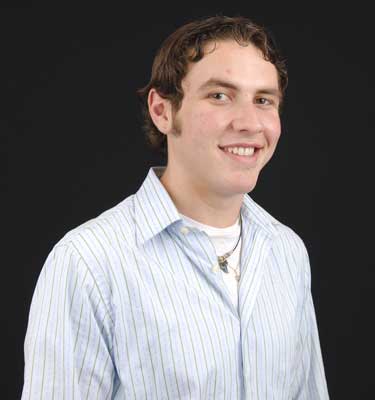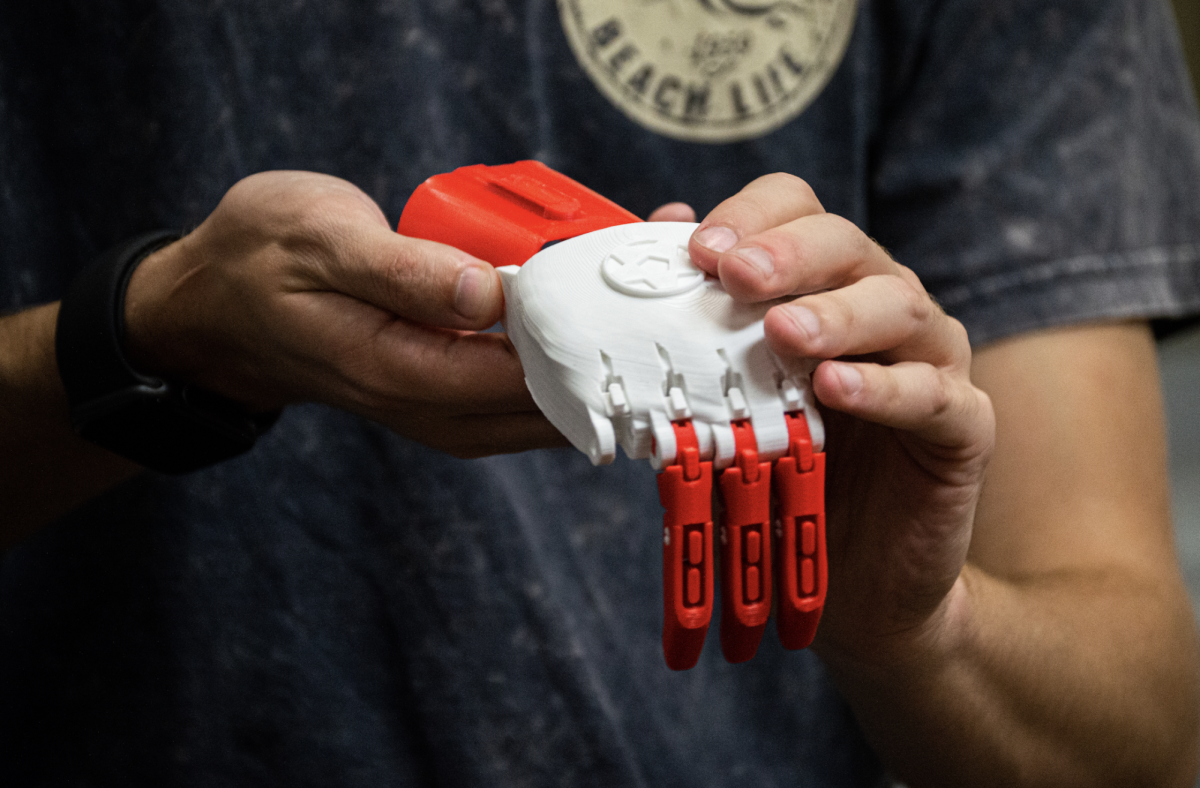Jared Milrad, a senior in fisheries and wildlife science, was selected as the student commencement speaker for the 2006 graduating class. Milrad was chosen by a selection committee. The selection process included an application with two references and a personal statement and an audition process, where applicants audition their speeches to four committee members.
“[I’m] humbled, of course,” Milrad said. When Dr. Louis Hunt, committee member and University registrar, notified him, Milrad said he thought he had dialed the wrong number. He said he had several friends who applied and were, in a way, better selections.
“I admire them more than I admire myself,” he said. “Even when you doubt yourself, you can achieve great things.”
His speech, he said, has two prongs: one, challenging graduates to reflect on where they came from — their ancestries — as well as what N.C. State has made them; and two, a call to action, encouraging graduates to gain a sense of global responsibility.
“I feel that in a more globalized world, there’s more responsibility and more inequity — more injustice,” he said. “I think that we need to be more aware of responding to those in need; we need to be more accountable.”
Milrad said he wrote most of his speech in Botswana, one of two places he studied abroad. He also studied in Kenya and said that Africa is forgotten a lot, especially by study abroad programs.
“The opportunity was there; I had to take it,” he said of his studying in Africa. “I learned a sense of global responsibility, the consciousness that there are disparities between what is expected at home.”
He said he also studied abroad because he wanted to “know what it was like to be a minority,” adding he visited places that helped him gain a little perspective he could share with others.
As a freshman, Milrad served on the Student Senate, where he sponsored a bill that called for the formation of an “alternative feasibility research committee” to investigate alternatives to the use of killed animals in lab classes for dissection. In addition, he helped form an organization that focuses on animal advocacy in an attempt to “give some common sense answers” to animal rights problems.
In response to his support for the bill, he said, he received some verbal abuse and threats, but he also received support.
“I can say that I have experienced some dislikes but more public disdain,” he said. “That really challenged my character and my inner strentgh.”
Milrad was also a participant of the Center for Student Leadership, Ethics and Public Service; the Caldwell programs; and Students for Sustainable Energy. Some of the clubs he helped create, he said, will continue to operate after he graduates.
“Not that it’s self-gratifying, but it’s a sense that something good will live on when I’m gone,” he said.
Milrad has advice for returning students:
“Don’t overburden yourself. I think that’s as equally harmful as doing nothing,” he said. “Save others with open minds and with a willingness to learn rather than a desire to improve your own status or your own appearance to peers.”
He also encouraged students to reach out to forgotten students and seek as many valuable opportunities as possible.
Milrad said his speech is still in the editing phases, but he’s looking at public speakers he admires, like Bill Clinton and Martin Luther King, Jr., to see what their styles and forms are.
“I believe in my message very strongly, so I want people to listen just as any person would,” Milrad said. “I’m not just speaking for myself — I’m speaking in part for my greatgrandparents, those who came before me. This speech is larger than me.”





